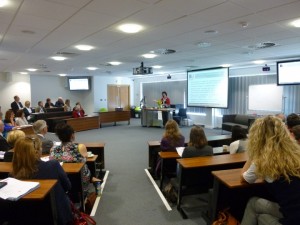 Bournemouth University Dementia Institute (BUDI) held its third open meeting at the university on 14th May, with this year’s theme being dementia friendly environments. The day was well attended by practitioners, family carers, the general public and people with dementia. It started with a lovely buffet lunch sponsored by Alzheimer Research UK, providing an opportunity for delegates to network and to browse the information stands hosted by themselves and BUDI Ph.D. students. The open meeting was formally opened by Professor Gail Thomas who praised the innovative work being carried out by the BUDI team. Delegates then heard presentations from Dr Fiona Kelly on dementia friendly design, Dr Jan Wiener on the use of eye tracking technology to explore navigation skills and difficulties, Kathrin Büter on using computer technology to support dementia friendly design in hospitals. This session closed with a presentation by architect Niall McLaughlin on his work with communities and older people to design care homes that meet everyone’s needs and are inspirational, therapeutic spaces. The final part of the day involved a question and answer session where delegates and presenters discussed some of the issues raised during the day including how to ensure that the concept of good design filters down to those commissioning, designing and using buildings that people with dementia also use. This successful event is sure to have got people thinking and sharing some of what they heard and we look forward to holding similar events in the future.
Bournemouth University Dementia Institute (BUDI) held its third open meeting at the university on 14th May, with this year’s theme being dementia friendly environments. The day was well attended by practitioners, family carers, the general public and people with dementia. It started with a lovely buffet lunch sponsored by Alzheimer Research UK, providing an opportunity for delegates to network and to browse the information stands hosted by themselves and BUDI Ph.D. students. The open meeting was formally opened by Professor Gail Thomas who praised the innovative work being carried out by the BUDI team. Delegates then heard presentations from Dr Fiona Kelly on dementia friendly design, Dr Jan Wiener on the use of eye tracking technology to explore navigation skills and difficulties, Kathrin Büter on using computer technology to support dementia friendly design in hospitals. This session closed with a presentation by architect Niall McLaughlin on his work with communities and older people to design care homes that meet everyone’s needs and are inspirational, therapeutic spaces. The final part of the day involved a question and answer session where delegates and presenters discussed some of the issues raised during the day including how to ensure that the concept of good design filters down to those commissioning, designing and using buildings that people with dementia also use. This successful event is sure to have got people thinking and sharing some of what they heard and we look forward to holding similar events in the future.
Category / Health, Wellbeing & Society
Übersetzen: Translation of the MGI in German
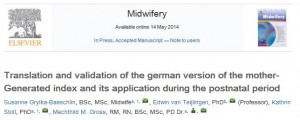
The Mother-Generated Index (MGI) is a validated tool to assess postnatal quality of life. It was originally designed and tested by Dr. Andrew Symon (http://nursingmidwifery.dundee.ac.uk/staff-member/dr-andrew-symon) at the University of Dundee. This instrument is usually administered several weeks or months after birth and correlates with indices of postpartum mood states and physical complaints. The instrument had not been translated into German before or validated for use among German-speaking women, nor have the results of the tool been assessed specifically for the administration directly after birth. Our recent paper (Susanne Grylka-Baeschlin, Edwin van Teijlingen, Kathrin Stoll and Mechthild Gross) in Midwifery describes the systematic translation process of the MGI into German and to assess the convergent validity of the German version of the instrument directly after birth and seven weeks postpartum
Susanne Grylka-Baeschlin, as part of a European COST Action, has spent time at Bournemouth University’s Centre for Midwifery, Maternal and Perinatal Health. Susanne Grylka-Bäschlin is a Swiss midwife based at the Hannover Medical School, Germany, who studies cultural differences in postnatal quality of life among German-speaking women in Switzerland and Germany.
Prof. Edwin van Teijlingen
CMMPH
Getting on Board with the Bournemouth and Poole Sustainable Food Cities Partnership:

Bournemouth and Poole Borough Councils were recently successful in a collaborative bid to become one of only six UK cities, to receive matched funding and support from the UK Sustainable Food Cities Network, over a 3 year period. BU is one of the funding partners; a number of BU staff are already contributing to what is an exciting development for the region.
The Sustainable Food Cities Network is an alliance of public, private and third sector organisations committed to promoting sustainable food. The Network comprising the Soil Association, Food Matters and Sustain aims to help people and places to share challenges, explore practical solutions and develop best practice in all aspects of sustainable food (Sustainable Food Cities 2014).
There are now opportunities for others to be involved. We have identified a number of potential project areas (at undergraduate and Master’s level) where students in particular, might wish to participate and where further research would support the work of the Partnership. Potential topic areas relate to the broad range of aspects related to sustainable food and drink including: the impacts of climate change, food security and food waste, food poverty, health and nutrition, well-being, food tourism, Fairtrade, community growing, the conversion of grey to green spaces, local food production, food marketing and distribution.

Information Session: If you are interested in finding out more, an information session on the Partnership and the student project opportunities will be held on Thursday June 19th from 2.00 – 3.30 pm in TAG31.
A more detailed list of the potential projects is available upon request. If you would like a copy of the list or you are unable to attend the information session and would like to discuss any of these potential projects or other ways that BU students could assist and be engaged with the Sustainable Food Cities Partnership, please contact one of the following BU staff and partnership members:
Dawn Birch – The Business School – dbirch@bournemouth.ac.uk
Chris Shiel – School of Applied Sciences – cshiel@bournemouth.ac.uk
Jill Quest – The Media School – jquest@bournemouth.ac.uk
Free places available for BU staff – BUDI workshop hosted by Museum of Modern Art (MoMA) 21st May 2014
Thanks to FIF Mobility Strand Funding, Bournemouth University Dementia Institute (BUDI) are delighted to be welcoming colleagues from the Museum of Modern Art (MoMA) in New York to Bournemouth University from 20-23rd May 2014. As part of their visit, BU Staff are being invited to join a free workshop. In this workshop MoMA’s specially trained Museum Educators will share their successful model and established approach for making their services dementia-friendly (validated via evaluation from New York University).
This workshop showcases MoMA’s innovative style of education delivery, providing attendees with an opportunity to hear the success of their approach and a practical demonstration in the Atrium Gallery. Staff with an interest in alternative teaching methods and those working with vulnerable groups may be particularly interested in attending. Please also pass on this information to any PhD students you feel may benefit from attending.
Date: 21st May 2014
Time: 11:00 – 15:30
Venue: Talbot Campus
There are a limited number of places available on this workshop for BU staff. To book a place, or for more information, please email mheward@bournemouth.ac.uk or call 01202 962538.
Successful Grant Application! Plaster & Boot Comparison for Ankle Fracture Surgery
Despite ankle fractures requiring surgery being so common, patients are managed in many different ways and there is debate over whether patients require prolonged periods immobilised in plaster or whether being able to actively move/use the ankle might be advantageous. £350k has recently been awarded to Poole Hospital and collaborators by the National Institute for Health Research’s Research for Patient Benefit scheme to find out!
The Dorset office of the South West Research Design Service based within Bournemouth University’s Clinical Research Unit were contacted in late Spring 2010 about the potential study and have therefore been involved in all aspects from the outset. Several members of the Clinical Research Unit are co-applicants and committed to the delivery of the trial.
As the Research Design Service project lead, Zoe Sheppard helped facilitate the grant application bringing in statistical support, patient and public involvement advice, qualitative research expertise, health economic expertise, costing and research and development advice liaising with finance and research and development departments as well as the Peninsula Clinical Trials Unit. In addition to inputting into specific aspects according to their expertise, all co-applicants also extensively commented on the overall design and proposal, meaning a wide-ranging input.
Two previous drafts were submitted to the mock funding committee. Six extensive written reviews were received from lay reviewers and methodologists as well feedback from the chair/panel members.
So if you would like support with a grant application for health research, please get in contact as early as possible – we look forward to working with you!
BUDI Open Public Meeting – 14 May 2014

This is a reminder that the BUDI Open Public meeting is tomorrow (14 May) there are still a few spaces available.
This year’s event focuses on dementia friendly environments, how design helps to support people living with dementia. The hospital environments and the philosphy of dementia friendly environments will be covered by external speakers.
To book your free place please go to eventbrite http://www.eventbrite.co.uk/e/budi-open-meeting-dementia-friendly-care-environments-tickets-9876528964
Puerto Rico welcomes a new BUDI

Every year the prestigious Alzheimer’s Disease International conference welcomes practitioners, academics, people living with dementia, medical professionals and clinicians from all over the world to share their latest knowledge, experience and research about dementia careThis year I was lucky enough to attend and represent BUDI at the 29th International Conference of Alzheimer’s Disease International Dementia: Working Together for a Global Solution, hosted in San Juan on the beautiful island of Puerto Rico.
 Three abstracts were accepted to be orally presented, so this was a great opportunity to showcase some of BUDI’s innovative research projects to world leading dementia specialists. The three presented projects were the Technology Club (Dementia Care and Technology), Tales of the Sea (Empowering people with dementia) and (Dont) Mention Dementia (Voices of people with dementia and their families).
Three abstracts were accepted to be orally presented, so this was a great opportunity to showcase some of BUDI’s innovative research projects to world leading dementia specialists. The three presented projects were the Technology Club (Dementia Care and Technology), Tales of the Sea (Empowering people with dementia) and (Dont) Mention Dementia (Voices of people with dementia and their families).
All three presentations were well received and stimulated discussion and many questions. The feedback I received after my presentations and during the conference was that BUDI’s projects were seen as innovative, creative and great examples of how to engage people with dementia in research and how people with dementia should be at the core of all research.
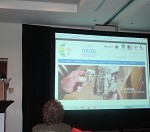 Above and beyond presenting, I had the opportunity to catch up with Peter, an Australian colleague (who I have been working on the international GRIID research project with for around two years and have never met!) Peter presented the GRIID project (Gateway to Rural International Initiatives in Dementia) at this conference. After his presentation we were able to meet and come up with some really innovative ideas to take the GRIID project to the next level.
Above and beyond presenting, I had the opportunity to catch up with Peter, an Australian colleague (who I have been working on the international GRIID research project with for around two years and have never met!) Peter presented the GRIID project (Gateway to Rural International Initiatives in Dementia) at this conference. After his presentation we were able to meet and come up with some really innovative ideas to take the GRIID project to the next level.
To top off a very successful conference, I won a huge kangaroo courtesy of the Australian Alzheimer’s Association. He was unfortunately a bit too big to fit into my case so he to travelled home with another colleague…I wonder if I will ever get him back as he was very cute!
Since returning home I have started to get in touch with some of the many contacts I made at this conference and look forward to potential international collaborations. This conference highlights all the good work currently being undertaken but also emphasises the amount of work we still need to do. I invite you to check out the below clip of Richard Taylor PhD, who presented numerous times at the conference. Richard is extremely funny and has a great approach and attitude to life. It is very thought provoking as he shares his thoughts about living with dementia. http://www.youtube.com/watch?v=lHQfc3KJ9qE.
Clare Cutler, BUDI Project Manager
Latest HSC paper in Birth
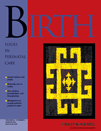 The international journal Birth published our latest paper:
The international journal Birth published our latest paper:
Whitford, H., Entwistle V.A., van Teijlingen, E., Aitchison, P., Davidson, T., Humphrey, T., Tucker, J. (2014) Use of a birth plan within woman-held maternity records: A qualitative study with women and staff in northeast Scotland, Birth (Epub ahead of print).
The co-authors of BU Professor Edwin van Teijlingen are affiliated with a wide-range of Scottish institutions: the University of Dundee; the University of Aberdeen, the University of Stirling, the Robert Gordon University, Aberdeen and NHS Grampian, Aberdeen.
This latest paper considers the use of a birth plan section within a national woman-held maternity record. Unlike England, Scotland has a national women-held maternity record. In Poole, for example, a midwife needs to complete another maternity record for women who want to deliver in the Poole area than those who want to delivery in Bournemouth Hospital and another form for those might want to go to the New Forest Birth Centre, and again another one for the Dorchester area. In Scotland a pregnant women receiving antenatal care in one health area and delivering in another can take her same record/notes along. As midwives (and other staff) only have to be familiar with one set of records, this reduces the chance of errors and avoiding duplication.
This qualitative study comprised interviews with women and maternity service staff in Northeast Scotland. In our study staff and women were generally positive about the provision of the birth plan section within the record. Perceived benefits included the opportunity to highlight preferences, enhance communication, stimulate discussions and address anxieties. However, some women were unaware of the opportunity or could not access the support they needed from staff to discuss or be confident about their options. Some were reluctant to plan too much. Staff recognised the need to support women with birth plan completion but noted practical challenges to this.
Prof. Edwin van Teijlingen
CMMPH
Delivering healthcare in prisons
A special event has been arranged at BU that will focus on health care within prisons. The session to be held on 28th May will be led by Jane Senior from the University of Manchester. Jane is a clinician-researcher and Research Project Manager for the Offender Health Research Network. Jane is a qualified mental health nurse with over 20 years of post qualification experience of working in prison and secure mental health settings.
Jane’s session will be of great value to anyone :
- thinking about undertaking research within UK prisons
- wanting to know more about health care delivery in prisons
- thinking of working with or in a prison health care team
During the session Jane will outline findings from her recent prison research projects. These include studies into how to manage the health and wellbeing of older prisoners and her recent work in developing the Older Prisoner Health and Social Care Assessment and Plan (OHSCAP). She will also highlight some of the specific issues that can arise when undertaking research within a prison environment.
Staff and students are welcome to attend the session. If you would like to attend please email Holly Crossen-White (hcrossen@Bournemouth.ac.uk).
HSC paper cited over hundred times in Scopus
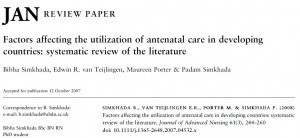 The academic publisher Elsevier alerted us today that our paper has been cited for the 101st time in Scopus. The paper ‘Factors affecting the utilization of antenatal care in developing countries: Systematic review of the literature’ was published in the Journal of Advanced Nursing. The paper was part of the first author’s Ph.D. research into maternity care in Nepal.
The academic publisher Elsevier alerted us today that our paper has been cited for the 101st time in Scopus. The paper ‘Factors affecting the utilization of antenatal care in developing countries: Systematic review of the literature’ was published in the Journal of Advanced Nursing. The paper was part of the first author’s Ph.D. research into maternity care in Nepal.
This paper is one of the four outputs submitted to the UK REF for both Prof. Edwin van Teijlingen as part of the Bournemouth University submission and for Dr. Padam Simkhada as part of the University of Sheffield submission.
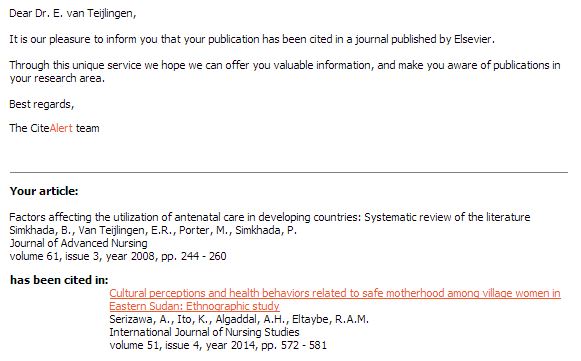
Prof. Edwin van Teijlingen
CMMPH, School of Health & Social Care
HSC study focus of Independent newspaper article
Published research in the Journal for the Royal Society of Medicine Open (JRSM Open for short), conducted by Professor Colin Pritchard and Andrew Harding in HSC, is today (Friday 02/05/14) the focus of an article in the Independent newspaper.
After the Francis Report into the scandal at Mid Staffordshire lay considerable blame at the Board for failing to tackle “…an insidious culture…focused on doing the system’s business – not that of the patient…”, Professor Pritchard and Andrew Harding looked at the occupational backgrounds of non executive directors (NEDs) of 146 NHS acute trusts (n=1,001 NEDs). The NHS is modelled on corporate governance, where a board of directors are scrutinised and held to account by non executive directors.
Considering NEDs principle task is to hold the executive, and thus the NHS, to account, the study found a shocking lack of non executive directors with medical, clinical or patient representation or background. As the Independent headline indicates, only 8% of non executive board members were healthcare professionals. Instead, it was far more prevalent and common for non executive directors to be from a commercial, or financial background – with a high proportion having been employed or current employees of major financials firms such as Deloite, KPMG, Grant Thornton, Merrill Lynch, Price-WaterHouse Coopers and JP Morgan. Females NEDs and those from ethnic minorities were also found to be in short supply.
For a full breakdown of the findings the article can be found, and is openly available here.
Panel discussion at Conference of the Canadian Society Sociology of Health Montreal 2014

Bournemouth University Prof. Edwin van Teijlingen was invited to take part in a panel discussion at the 4th Conference of the Canadian Society of Sociology of Health. The panel consisted of academics are long-term collaborators on a project called Birth by Design (BBD). The meeting was made possible by fellow BBD collaborator Prof. Ivy Bourgeault (University of Ottawa).
The BBD collaboration comprises academics from a range of different scholarly backgrounds including sociology, political science and midwifery. The group started in 1997 with international colleagues who worked originally on a collaborative project called ‘Birth in Europe and North-America’. This work resulted in the book Birth by Design1 and many papers in major sociology academic journals including Sociology of Health & Illness and Social Science & Medicine.2-10
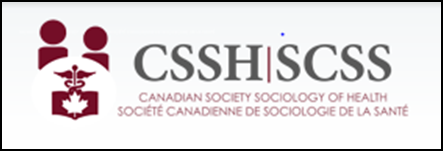
The panel discussion was introduced and led by BBD collaborator Prof. Cecilia Benoit (University of Victoria, Canada). Dr. Sirpa Wrede (University of Helsinki) outlined the BBD project and the new methodological insights it provided at the time of cross-national comparative research into maternity care. Prof. Raymond DeVries (University of Michigan & Maastricht Universiteit) spoke of the difficulties Dutch midwives face in their effort to maintain the unique maternity care system in the Netherlands. Prof. Gene Declercq (Boston University School of Public Health) presented findings of a study of US mothers. Prof. Jane Sandall (King’s College London) spoke about the policy implementation gap and Prof. Edwin van Teijlingen reminded the audience to keep a theoretical perspective in mind when conducting comparative research in general. Prof. Bourgeault had organised that all slides were translated in the French as the conference was bi-lingual.
Prof. Edwin van Teijlingen
CMMPH
References:
- DeVries, R., Benoit, C., Teijlingen van, E. & Wrede, S. (eds.) (2001) Birth by Design: Pregnancy, Midwifery Care and Midwifery in North America and Europe, New York: Routledge. Birth by Design was short-listed for the 2004 BSA Medical Sociology Book Prize!
- van Teijlingen, E.R., Sandall, J., Wrede, S., Benoit, C., DeVries, R., Bourgeault, I. (2003) Comparative studies in maternity care RCM Midwives Journal 6: 338-40.
- DeVries, R., Wrede, S., van Teijlingen E., Benoit, C. & Declercq, E. (2004). Making Maternity Care: The Consequences of Culture for Health Care Systems. In: Vinken, H., Soeters, J. & Ester, P. (Eds.), Comparing Cultures, Leiden, the Netherlands: Brill, 209-231.
- Benoit, C. Wrede, S., Bourgeault, I, Sandall, J., DeVries, R., van Teijlingen E. (2005) Understanding the social organisation of maternity care systems: Midwifery as a Touchstone, Sociology of Health & Illness, 27(6): 722-737.
- Wrede, S., Benoit, C., Bourgeault, I.L., van Teijlingen E.R., Sandall, J., De Vries, R. (2006) Decentered Comparative Research: Context Sensitive Analysis of Health Care, Social Science & Medicine, 63: 2986-2997.
- van Teijlingen, E.R., Wrede, S., Benoit, C., Sandall, J., De Vries, R. (2009) Born in the USA: Exceptionalism in Maternity Care Organisation Among High-Income Countries Sociological Research Online, 14(1) www.socresonline.org.uk/14/1/5.html
- Sandall, J., Benoit, C., Wrede, S., Murray, S.F., van Teijlingen E.R., Westfall, R. (2009) The reconfiguration of professional relations with clients: social service professionalism or market expert? Current Sociology 57(4): 529–553.
- Bourgeault, I.L., Declercq, E., Sandall, J., Wrede, S., Vanstone, M., van Teijlingen E. DeVries, R. & Benoit, C. (2008) Too posh too push? Comparative perspectives on maternal request caesarean sections in Canada, the US, the UK and Finland. In: Chambré, S.M. & Goldner, M. (eds.) Advances in Medical Sociology Patients, consumers and civil society. Vol. 10. London: JAI Press, 99-123.
- Sandall, J., Benoit, C., van Teijlingen E., Wrede, S., Declercq, G. & De Vries, R. (2012) Gender and maternal healthcare. In: Kuhlmann E. & Annandale, E. (eds.) Palgrave Handbook of Gender & Healthcare (2nd edn.). Houndmills: Palgrave Macmillan, 389-404.
- Benoit, C., Sandall, J., Benoit, C., Murray, S.F., van Teijlingen E., Wrede, S., Declercq, G. & De Vries, R. Maternity Care as Global Health Policy Issue. In: E. Kuhlmann, E., Bourgeault, I. (eds.) Palgrave International Handbook on Health Care Policy & Governance, Houndmills: Palgrave Macmillan (forthcoming).
Latest CEMP Research Bulletin

Here is the updated CEMP Research / Innovation bulletin for May / June 2014. CEMP bulletin May June 2014
Please contact Julian or Richard in CEMP if you are interested in any of the funding opportunities here, or have other ideas for collaborative projects with CEMP.
More about academic writing

Earlier this year (13th Jan. 2014) we wrote a BU Research Blog under the title ‘Writing about academic publishing’. We can now add two further contributions this body of work. The first article in Nepal Journal of Epidemiology offers some advice on how to construct a title for an academic article. The authors (BU Professors Edwin van Teijlingen and Vanora Hundley; BU Visiting Faculty Ms. Jillian Ireland and Dr. Padam Simkhada and international collaborator Dr. Brijesh Sathian) have a wealth of experience reviewing papers and all have experience as editor board members and/or editors. The authors are associated the editorial boards of the many journals, including: Birth, BMC Pregnancy & Childbirth, Medical Science, Nepal Journal of Epidemiology, Essentially MIDIRS, Sociological Research Online, Hellenic Journal of Nursing Science, Midwifery and Asian Journal of Health Sciences. In our joint capacity as reviewers and editors we have seen some great and some awful titles. The paper in Nepal Journal of Epidemiology is an attempt to improve the appropriateness and usefulness of titles chosen by budding authors.
The second addition is an editorial in the international journal Midwifery published by Elsevier. Together with HSC Visiting Faculty Prof. Debra Bick we address the question: ‘Who should be an author on your academic paper?’ Still too often we hear about worrying stories from fellow academic s and postgraduate students about inappropriate behaviour related to authorship of academic journal papers. The Midwifery Editorial advises academics to discuss authorship and authorship order early on in the writing process. At the same time, it highlights that authorship ‘rules’ or ‘traditions’ can vary between different academic disciplines. Thus when working in a multidisciplinary team, issues of authorship of any papers which arise out of the study should be discussed before problems or concerns arise.
We would like to take this opportunity point our readers to another interesting and useful BU Research Blog written by Shelly Maskell under the title: ‘How to design a completely uninformative title’ (7th Feb. 2014).
Prof. Edwin van Teijlingen & Prof. Vanora Hundley
Centre for Midwifery, Maternal & Perinatal Health, Bournemouth University
References:
- van Teijlingen, E., Ireland, J., Hundley, V., Simkhada, P., Sathian, B. (2014) Finding the right title for your article: Advice for academic authors, Nepal Journal of Epidemiology 4(1): 344-347.
- van Teijlingen, E., Hundley, V., Bick, D. (2014) Who should be an author on your academic paper? Midwifery 30: 385-386.
Highest marks for International Fellowship for Midwives research in Nepal
In 2013 Wellbeing of Women joined the Royal College of Midwives (RCM) to offer the International Fellowship for Midwives (worth £20,000). Their first ever recipient was BU Lesley Milne with her supporting team. Lesley is a Senior Lecturer in Midwifery based at BU’s Portsmouth Branch Campus and her proposal set out to undertake a research project to explore barriers to facility birth in Nepal.
Apart from Lesley herself the BU team comprises Vanora Hundley, Professor in Midwifery, Edwin van Teijlingen, Professor of Reproductive Health Research, and two HSC Visiting Faculty members, namely Dr. Padam Simkhada, Senior Lecturer at the University of Sheffield, and Ms. Jillian Ireland, Community Midwife NHS Poole Hospitals.
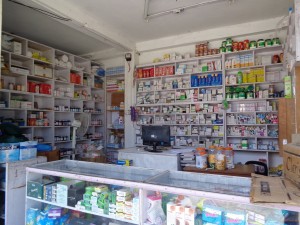
Small commercial pharmacy outside local hospital (Nepal)
At the end of March 2014 we submitted the final report on the research to Well-Being of Women and the RCM and this report gained an ‘A’ in their scoring system. Last week at the feedback meeting in Well-Being of Women’s office in London Lesley presented some of her key findings which she illustrated with some of her photographs. The comments from those round the table were that the topic was well researched and that the qualitative research findings could help focus the funders in their future work.
Having reached the dissemination stage, we are planning scientific papers as well as a feedback session in Kathmandu (in September this year). Currently we are working on two academic papers, one is in an advanced stage approaching submission and the other is just passed its draft stage.
Lesley Milne, Vanora Hundley, Jillian Ireland (Visiting Faculty),Edwin van Teijlingen & Padam Simkhada (Visiting Faculty)
Centre for Midwifery, Maternal & Perinatal Health
School of Health & Social Care
School of Tourism Undergraduates Highlight Research at National BCUR Gathering
School of Tourism had an impressive presence at last week’s BCUR (British Conference of Undergraduate Research) gathering held at University of Nottingham www.bcur.org. Now in its fourth year, the 2014 conference was the biggest yet with 350 undergraduate students coming from university’s all over the UK and beyond. The students were joined by other undergraduates from a wide cross section of disciplines including: London School of Economics, University(s) of Cambridge, Aberdeen, Leeds, Exeter and Reading, Roehampton & Newcastle, Trinity Dublin and Tennessee. Topics ranged from genetic engineering; Preparing youth for the UK labour market; to advances in water purification, archaeology and recent controversies in the meat industry affect buying behaviour. Katie Azulay, is studying a BSc (Hons) Sports Development and Coaching Sciences and said “BCUR is an experience I will never forget. Seeing other students research from all around the world was extremely interesting, as well as presenting my own research to them – a proud moment representing BU”. Katie presented her research on ‘Investigating the impact of motivational interviewing on exercise adherence among Exercise Referral Scheme patients with a BMI <35’.
BU’s wider presence at BCUR ties nicely into raising the profile of undergraduate research in future from a successful Fusion Bid led by Luciana Esteves to host SURE@BU (Showcasing Undergraduate Research Excellence) in March 2015. The SURE@BU gathering is meant to give students the opportunity to gain key experience and skills, but also make their work visible to potential employers or placement hosts. There will be awards and prizes for the best posters and oral presentations. It is hoped that the successful hosting of SURE@BU places BU in a position to also host the national BCUR gathering in 2017.
The School of Tourism final year undergraduate students saw the true benefit of participating at BCUR in Nottingham last week. Adam Doherty, who studying BSc (Hons) Sport Psychology and Coaching Science said “I thoroughly enjoyed it and was amazed at the wide variety of research that was being conducted at this level (Undergraduate). I learnt a vast amount about subjects in which I had little or no prior knowledge of and I was glad to be able to showcase my work to others who were equally interested”.
Adam’s research is entitled “Is there a science behind saving penalties? A study looking into the psychological approach in a goalkeepers positioning and movement from 12 yards”.
Other ST students also took part earlier in the year in BCUR’s led up event called Posters in Parliament, held in the Jubilee Room at Houses of Parliament. Amber Madkour studying BSc (Hons) Sports Development and Coaching Sciences presented her research on ‘Exploring Feminity in fitness: Crossfit as a site for empowering embodiment for Women’ and Rachel Luff presented hers on ‘An Investigation into volunteer management techniques used to achieve expected volunteer experience at Great Ormond Street Hospital Children’s Charity’. A number of MP’s were also on hand during the day to meet and chat with students on their research. This included among others David Blunkett, Angela Smith, Simon Hart, and Mark Williams. There was a judging panel made up of Ben Wallace MP; Sean Coughlan, Education Correspondent at the BBC; Professor Julio Rivera, President of the US Council of Undergraduate Research; and Katherine Harrington of the Higher Education Academy.
Amber had the following comments about profiling her research in Parliament “Partaking in this event allowed me to share what I have learnt by discussing the focus of my dissertation with other students and academics. Being able to present my research in Parliament is a day I will remember looking back at my University career, and I am very proud to have such an opportunity”. Rachel Luff, who also took part said “The feedback I gained was very positive, people saying how interesting and relevant my topic is, this reaffirmed my interest in the research and took away from the ‘dread’ of the dissertation journey. The benefits from this opportunity has outnumbered the extra work I initially put in”.
Students and academics involved in BCUR activity are encouraged to seek platforms to share their research, including Reinvention – International Journal of Undergraduate Research. Reinvention is an online, peer-reviewed journal, dedicated to the publication of high-quality undergraduate student research, and only houses papers written by undergraduate students or papers written collaboratively by undergraduate students and academics.
HSC Writing Retreat: Freedom to write
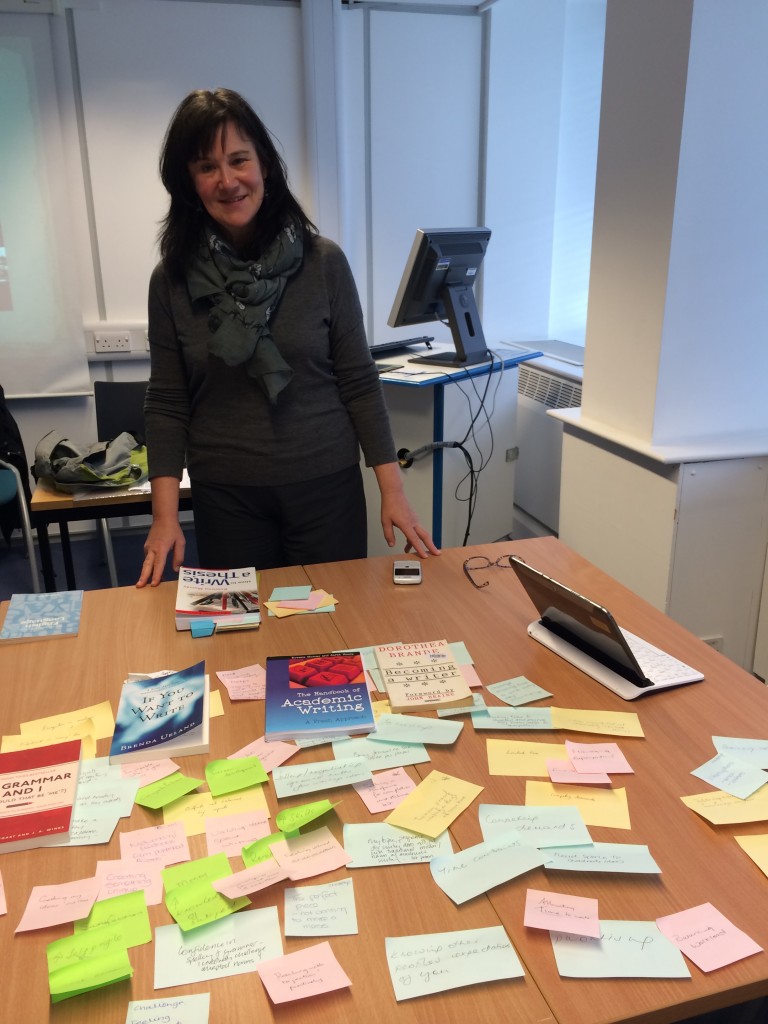 Today saw the first of two Writing Retreat workshops organised by HSC. The intensive writing day was led by Ms. Caroline Brimblecombe. Caroline is a Norwich-based training consultant and project manager, who leads workshops in the technique of freewriting, as well as on academic writing. She holds an MA in Public Policy from the Humphrey Institute of Public Affairs at the University of Minnesota, and spent many years as a public sector manager and policy analyst. She used a combination of exercises based on notions of creative writing and free writing. The Writing Retreat offered advice and a dedicated space and time to practice academic writing. Today’s intensive session was attended by the first cohort of HSC academics, who considered some of their challenges to writing and some of the rewards. Not surprisingly there were more challenges than rewards, and the former included lack of time, high workload and interruptions. Personal satisfaction and a sense of achievement scored high on the list of rewards.
Today saw the first of two Writing Retreat workshops organised by HSC. The intensive writing day was led by Ms. Caroline Brimblecombe. Caroline is a Norwich-based training consultant and project manager, who leads workshops in the technique of freewriting, as well as on academic writing. She holds an MA in Public Policy from the Humphrey Institute of Public Affairs at the University of Minnesota, and spent many years as a public sector manager and policy analyst. She used a combination of exercises based on notions of creative writing and free writing. The Writing Retreat offered advice and a dedicated space and time to practice academic writing. Today’s intensive session was attended by the first cohort of HSC academics, who considered some of their challenges to writing and some of the rewards. Not surprisingly there were more challenges than rewards, and the former included lack of time, high workload and interruptions. Personal satisfaction and a sense of achievement scored high on the list of rewards.
Caroline suggested the participants considered ‘Serial Writing’. This is the notion that you write regularly, hence the ‘serial’. The idea is to create a flow of writing to help you generate content as well as a habit of writing. This will be a valuable tool for workshop participants who have committed to working with a mentor to produce a manuscript for submission by the end of July.
For those motivated staff members who would like to have a go at this. The next session is planned for the 28th of May and there are still a few free places available. Please contact Jo Temple if you would like to sign up.
We both participated ourselves and we would highly recommend this Writing Retreat!
Edwin van Teijlingen & Vanora Hundley
CMMPH
Compassion in Action with Professor Belinda Dewar
Wednesday 21st May 2014 between 1 – 1.50pm at the Executive Business Centre (EB203)
Professor Belinda Dewar is the Professor of Practice Improvement at the University of the West of Scotland. She has been working with nurses, allied health care professionals, patients, residents and families in a range of care settings over the last 25 years to support improving the experience of giving and receiving care. She is recognised nationally and internationally for her work on caring and methodologies for improvement which include Action Research and Appreciative Inquiry, as well as designing and delivering innovative transformational leadership programmes.
In this presentation Professor Belinda Dewar will discuss the evidence base and policy imperatives for compassion and debate myths and misconceptions of compassion and what we are up against to move forward in this area. She will highlight important work that has already gone on in this area and debate how we can build on this. She will also share with you the development of a model for compassionate relationship centred care and discuss the key domains of this model that support practitioners, in education, practice and research to develop skills in compassionate caring. She will look at specific strategies that bring the model to life including emotional touch points, development of positive caring practices and focusing on compassionate proofing of language.
The masterclass is suitable for postgraduate students, academics and professionals who are looking for an introduction to Appreciative Inquiry.
For more information, please contact 01202 962184 or email wellbeing@bournemouth.ac.uk
We look forward to seeing you there.
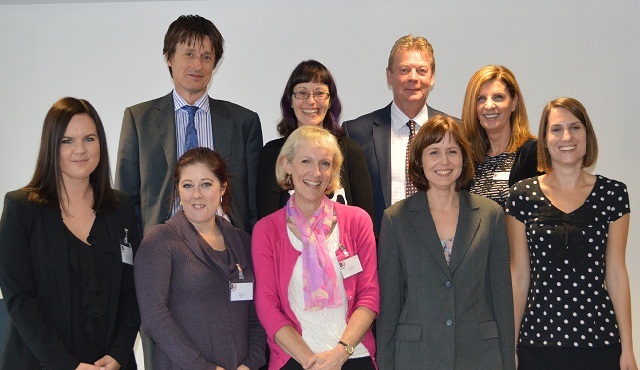


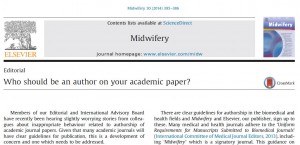

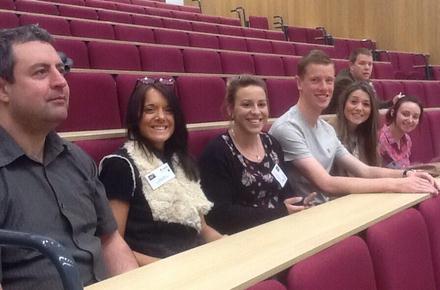
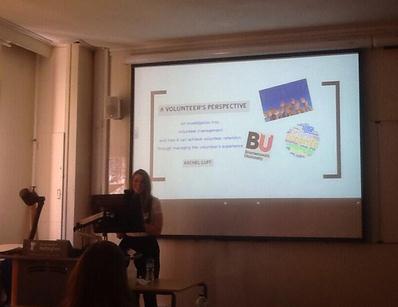

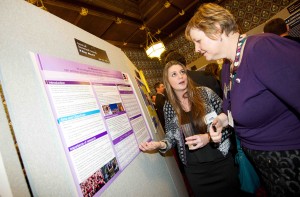











 REF Code of Practice consultation is open!
REF Code of Practice consultation is open! BU Leads AI-Driven Work Package in EU Horizon SUSHEAS Project
BU Leads AI-Driven Work Package in EU Horizon SUSHEAS Project Evidence Synthesis Centre open at Kathmandu University
Evidence Synthesis Centre open at Kathmandu University Expand Your Impact: Collaboration and Networking Workshops for Researchers
Expand Your Impact: Collaboration and Networking Workshops for Researchers ECR Funding Open Call: Research Culture & Community Grant – Apply now
ECR Funding Open Call: Research Culture & Community Grant – Apply now ECR Funding Open Call: Research Culture & Community Grant – Application Deadline Friday 12 December
ECR Funding Open Call: Research Culture & Community Grant – Application Deadline Friday 12 December MSCA Postdoctoral Fellowships 2025 Call
MSCA Postdoctoral Fellowships 2025 Call ERC Advanced Grant 2025 Webinar
ERC Advanced Grant 2025 Webinar Update on UKRO services
Update on UKRO services European research project exploring use of ‘virtual twins’ to better manage metabolic associated fatty liver disease
European research project exploring use of ‘virtual twins’ to better manage metabolic associated fatty liver disease